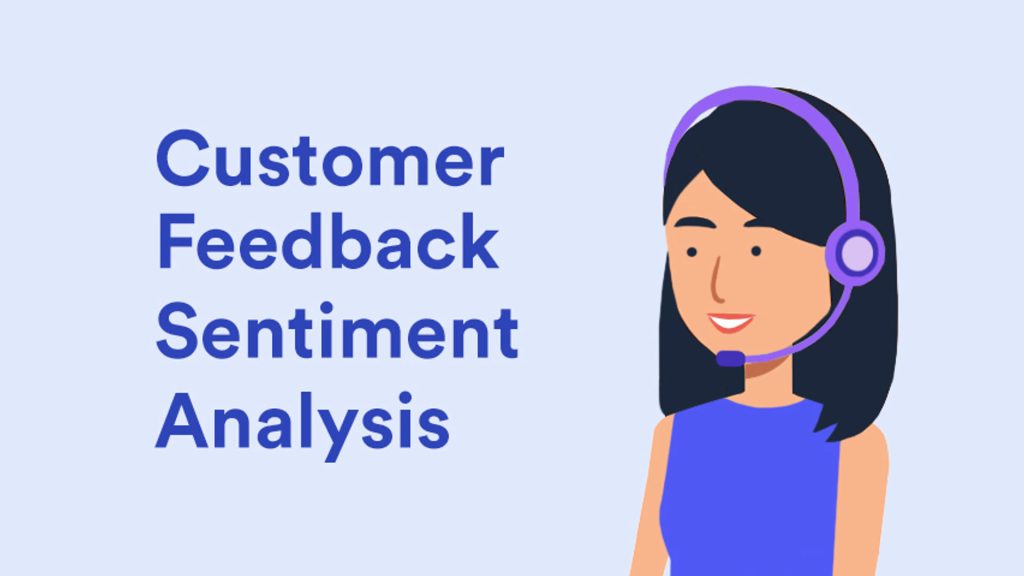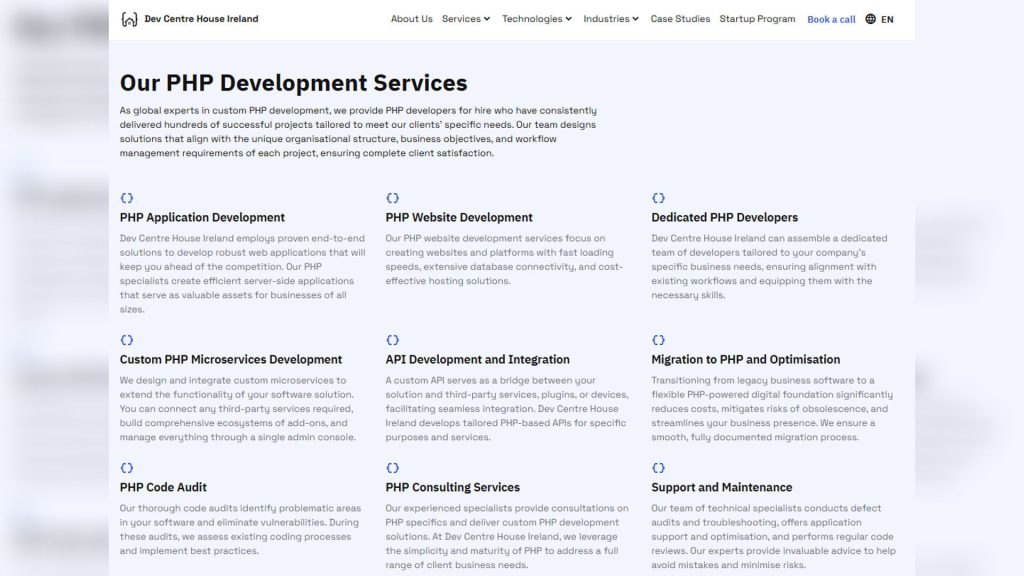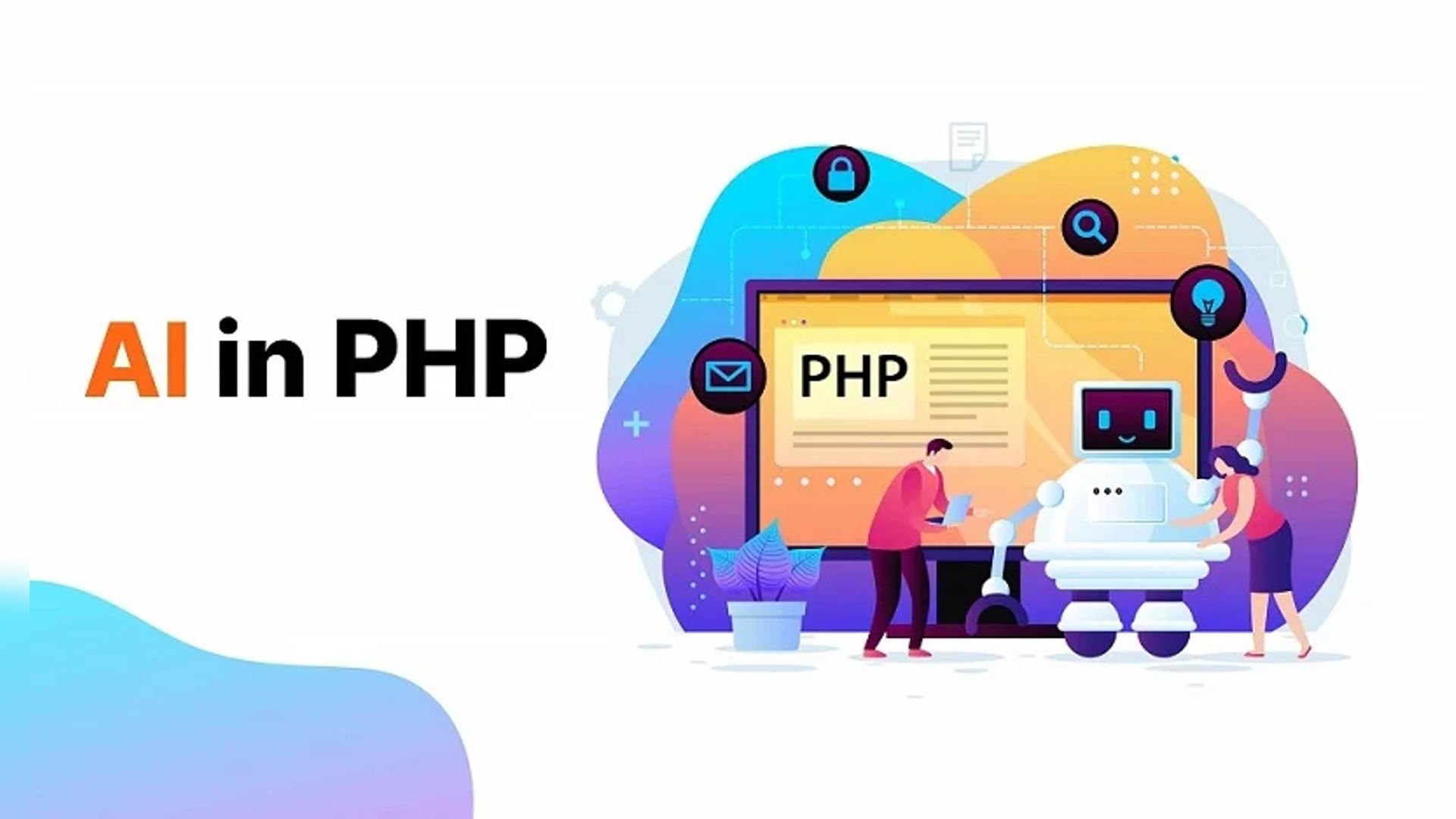Artificial Intelligence (AI) is transforming software development, enabling applications to become more intelligent, efficient, and user-friendly. PHP, one of the most widely used backend languages, can leverage AI capabilities to build smarter applications. By integrating AI with PHP, developers can enhance user experiences, automate tasks, and improve decision-making processes. In this article, we’ll explore six smart ways to build AI-powered applications using PHP.
1. Chatbots for Customer Support
AI-powered chatbots are revolutionizing customer interactions by providing instant responses and automating support processes. PHP can be integrated with AI-powered chatbot platforms like Dialogflow, IBM Watson, or OpenAI’s GPT API to create intelligent conversational agents.
How to Implement:
- Use PHP’s
cURLor Guzzle to connect with AI-based chatbot APIs. - Process user queries and send responses in real-time.
- Utilize NLP (Natural Language Processing) to improve contextual understanding.
Example: Integrating OpenAI’s GPT API to generate dynamic responses in a PHP-based chatbot.
2. AI-Based Image Recognition
Image recognition powered by AI can be used for applications such as facial recognition, object detection, and automated tagging. PHP can connect with AI-powered image processing services like Google Vision API, AWS Rekognition, or OpenCV.
How to Implement:
- Use PHP to upload images and send them to an AI service for processing.
- Receive and display AI-generated labels, facial recognition results, or object detection outputs.
- Store processed metadata for future reference.
Example: A PHP-based application that scans and categorizes images using Google Vision API.
3. Sentiment Analysis for User Feedback

AI-powered sentiment analysis helps businesses understand user opinions, reviews, and feedback by determining whether a sentiment is positive, neutral, or negative. This can be implemented in PHP using NLP libraries or APIs like Google Natural Language, IBM Watson, or Aylien.
How to Implement:
- Collect user feedback and process it using an AI sentiment analysis API.
- Store and visualize sentiment results in a PHP-based dashboard.
- Use AI insights to improve customer engagement strategies.
Example: Analyzing user reviews for an e-commerce platform and categorizing them based on sentiment.
4. AI-Driven Recommendation Systems
Personalized recommendations improve user engagement in e-commerce, content platforms, and streaming services. AI algorithms analyze user behavior and preferences to suggest relevant products or content.
How to Implement:
- Track user activity and store it in a database.
- Use PHP to interact with AI-based recommendation engines like TensorFlow, ML Kit, or Amazon Personalize.
- Display AI-generated recommendations dynamically.
Example: A PHP-powered online store suggesting products based on browsing history.
5. Predictive Analytics for Business Insights
AI-driven predictive analytics helps businesses make data-driven decisions by forecasting trends, sales, and customer behavior. PHP applications can integrate AI models to generate predictive insights.
How to Implement:
- Collect historical data from databases.
- Use AI-powered analytics APIs like BigML or Google AI Platform.
- Visualize predictive insights in a PHP dashboard.
Example: A financial PHP application predicting stock market trends using AI models.
6. AI-Powered Voice Assistants
Voice-controlled applications enhance accessibility and provide hands-free interaction. PHP can integrate with AI-driven voice recognition APIs like Google Speech-to-Text, IBM Watson Speech API, or Amazon Transcribe.
How to Implement:
- Capture voice input via a web interface.
- Process the input using AI-based speech recognition APIs.
- Convert the transcribed text into responses using a chatbot or NLP model.
Example: A PHP-based smart assistant that converts voice commands into actionable responses.
Dev Centre House Ireland: Building PHP’s Intelligent Future with AI

Integrating AI with PHP opens up a world of possibilities for building intelligent applications. From chatbots to predictive analytics, AI-powered features can enhance functionality, automate processes, and improve user experiences. By leveraging AI-driven APIs and machine learning models, PHP developers can stay ahead in the competitive tech landscape.
FAQ
Question: What are common use cases for integrating AI with PHP applications?
Answer: Common use cases include chatbots, recommendation engines, image processing, sentiment analysis, auto-tagging, predictive analytics, and document summarization.
Question: Which PHP-friendly AI services are typically used?
Answer: Popular options include OpenAI’s GPT via their PHP SDK, Hugging Face endpoints, Google Cloud AI, AWS AI services, and custom Python-based APIs.
Question: How can I integrate GPT-powered chat into a Laravel app?
Answer: By using HTTP calls (e.g., via Guzzle) to OpenAI’s API, handling responses, managing token usage, and embedding chat interfaces in your PHP front-end.
Question: What should I consider when choosing AI models for PHP apps?
Answer: Consider response latency, cost per token/call, domain suitability, and API limits to ensure the model meets your app’s needs effectively.
Question: Is it possible to run AI locally in PHP applications?
Answer: Yes, using lightweight open-source models (e.g., TinyLLM) via Python services that your PHP app can call, though setup is more complex.
Question: How can I ensure seamless PHP-to-AI communication?
Answer: Use queued requests, caching responses, and meaningful error handling while separating API calls from user-facing code to maintain performance.
Question: Are there PHP-specific libraries to simplify AI integration?
Answer: Yes, libraries like openai-php/client, php-ml, and third-party SDKs wrap AI APIs to make integration easier and more maintainable.
Question: How do I handle API rate limits and costs when calling AI services?
Answer: Use batching, caching, usage tracking, and choose suitable service tiers to optimize performance while controlling expenses.
Question: What are best practices for secure AI integration in PHP?
Answer: Secure API keys, validate inputs/outputs, sanitize user data, use rate limiting, and encrypt logs, ensuring compliance and safety.
Question: How can AI enhance legacy PHP applications?
Answer: AI can automate form fields, improve search relevance, generate content, detect spam, and provide smart admin tooling, adding modern capabilities.
Looking to build AI-powered PHP applications? Dev Centre House Ireland offers expert PHP development services, helping businesses integrate AI seamlessly into their projects.
